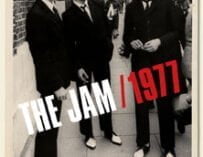
So long, farewell, auf Wiedersehen, adieu
It’s a sad time as fans crowd the graveside of the UK’s most historical music magazine. Here’s a brief history
It’s no surprise when magazines and newspapers go out of business in this digital age; but this week the announcement that the New Musical Express (NME) will cease printing shocked many fans new and old.
The NME is perhaps the most iconic music magazine in the UK. For decades it was at the forefront of popular music, while boasting some of the finest homegrown writers. Not afraid to rattle cages, piss people off, or just be a bit pretentious, the pages of the NME were full of original stories.
Established in 1952, the NME was a rebranding of the Accordion And Musical Express. The aim was to rival Melody Maker, the most popular music paper at the time. However, Melody Maker was a trade paper, not relevant to the average music fan. The NME took innovative steps to stand out; it was the first British paper to include a singles chart.
The NME was quick to jump on rock ’n’ roll, the musical phenomenon that came from the USA. In the 60s bands like The Rolling Stones and The Beatles dominated the magazine’s cover, while the late 70s saw the NME at the forefront again, by helping to introduce punk to the UK. Whether it be The Smiths, Hip Hop, the ‘Madchester’ rave craze, or Britpop, the NME was there. But what’s been happening over the last few years?
In 2015, the NME took another innovative step by ditching the cover price. The free version was a thinner volume than the standard edition and it featured more mainstream pop artists. It was a decision that won editor-in-chief Mike Williams Editor Of The Year Award at the British Society Of Magazine Editors Awards 2016.
Print magazines and newspapers are struggling to keep the format alive. Most people will argue that print journalism is coming to an end as periodicals move online. This might be true of the mainstream, but as football fans are finding out the re-emergence of fanzines is giving frontline writers a voice.
The NME’s legacy is the millions of magazine founders, fanzine creators, writers, journalists, broadcasters, bloggers, musicians and bands that have been inspired to take their love of music to the next level.


































Related Articles